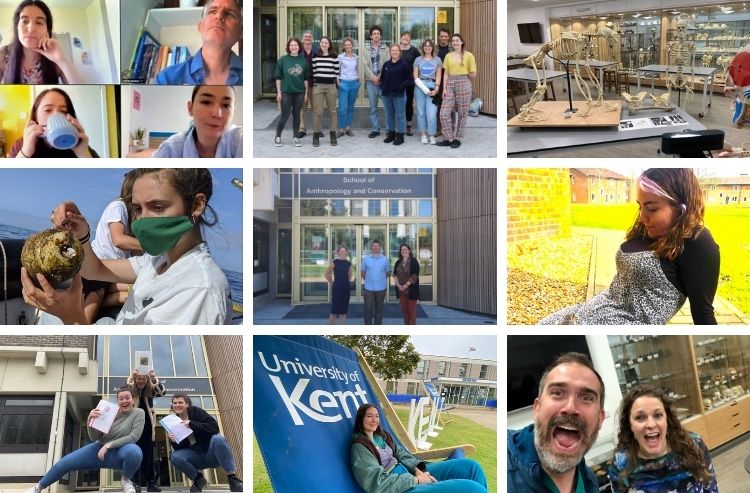‘The School of Anthropology and Conservation’s unique multi and inter-disciplinary nature, recognising the links between human society, human evolution and the natural environment, and its excellence in both teaching and research, are the reasons I joined more than 10 years ago and continue to be excited to be a member. In our fast changing world, the school is in a unique position to address some the most pressing issues, debates and challenges that we are facing today.’ Our new Head of School Tanya Humle describes best the essence of the wide-ranging work we do here.
We’ve rounded up some of the moments that that have demonstrated that over the last academic year.
Together, let’s turn Kent into a world-leading, sustainable university we can all be proud of!
- In Protecting the Planet we documented how the University of Kent is responding to the ongoing climate crisis, a year on from the School of Anthropology and Conservation’s declaration of a Climate and Environmental Emergency.
- Our People’s Assembly on Aviation aimed to get the School of Anthropology and Conservation (SAC) walking the walk with its carbon emissions policy. After the School’s Declaration of a Climate and Ecological Emergency in 2019, we are committed to lead the way in action not just words.
Degrees – Studying with SAC gets even more interesting!
- We launched a new programme in Human Biology and Behaviour BSc -a unique and exciting course that explores what it means to be human.
- ‘The beautiful thing about an Anthropology degree, anything to do will humans is a viable writing topic’. We had some amazing Stage 3 dissertations submitted this year. Read how Nerys Bushnell came to write hers on female sex toy preference.
It all happens on our Canterbury Campus!
- We appeared on BBC’s Operation Ouch! Dr Sarah Johns met Dr Xand van Tulleken on campus to film for the episode ‘How to Train a Brain’ which aired in March investigating the differences between human and animal babies.
- Our campus was the perfect place for a BioBlitz – an interactive event, to record as many living species as possible within a specific area, in a short amount of time. This data was created through collecting many biological surveys carried out by scientists, the public and volunteers, providing an excellent opportunity to get the local community involved with conservation.
- ‘The main thing that attracted me to Kent was the diverse nature of the university, there are so many different people to meet in addition to a variety of societies – there is something for everyone’. The Uncertainty of Clearing transformed into Abbie Cushion’s bright future.
Global climate crisis, conservation
- Does conservation have a diversity problem? Wildlife Conservation Student Sorrel Wilson won the ECOS essay competition with her essay on diversity.
- With record high temperatures causing devastation in Canada and North-West USA, and now Europe, Dr Jonathan Rock Rokem, explains the link between urban areas and the global climate crisis. Read more here.
- Our ground-breaking research suggesting that the first cases of COVID-19 arose earlier than initially thought, was reported worldwide.
- ‘An expensive, stressful and potentially risky procedure that will get lots of media attention but do nothing of value for conservation.’ Professor Keith Somerville doesn’t mince his words when discussing rewilding African elephants from Howletts to Southern Kenya. Read more here.
Keep up to date with the latest news from the School of Anthropology and Conservation

